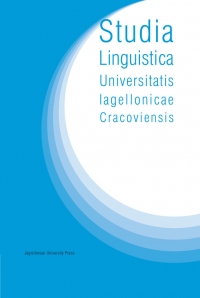Merseburg pars pro toto: Name, etymology and meaning in the context of the Middle Ages
Merseburg pars pro toto: Name, etymology and meaning in the context of the Middle Ages
Author(s): Christian ZschieschangSubject(s): Language studies, Semantics, Historical Linguistics, 6th to 12th Centuries, Philology
Published by: Wydawnictwo Uniwersytetu Jagiellońskiego
Keywords: toponymy; toponomastics; ancient roots; potential of the place; German-Slavonic contact zone;
Summary/Abstract: Place-name research seems to be dominated by etymological questions. But other perspectives are important as well, as is demonstrated in one particular case: the conviction Thietmar of Merseburg manifests in his chronicle in the early 11th century that the place of his bishopric seat was named after Mars, the Roman god of war. This was not just his personal belief, but rather it fully corresponds with the then prevailing beliefs used in explaining the world and names at that time. And, seemingly, this prominent etymology raised the importance and prestige of the place and its imperial palace, as it is outlined in the present article.
Journal: Studia Linguistica Universitatis Iagellonicae Cracoviensis
- Issue Year: 137/2020
- Issue No: 1
- Page Range: 39-45
- Page Count: 7
- Language: English

